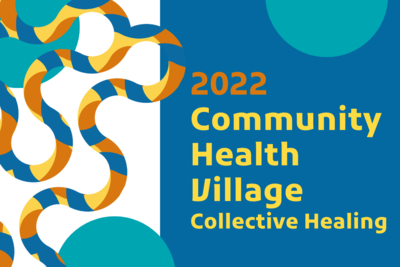Responding to Defeat and Creating Communities of Hope

- Who: Jehanzeb and Prathama Raghavan
- Date: Thursday, October 20
- Time: 11:00 am to 12:00pm EDT (What time is in my city?)
- Language: English
- Location: Zoom
RSVP: https://digitalrights.formstack.com/forms/chv2022_4
Responding to Defeat and Creating Communities of Hope
Individuals that work on digital rights do their work in oppressive contexts, usually with minimal resources, that can challenge their sense of self, make them feel demoralized, and question whether their work has any significant impact.
By attending this session, participants will learn about:
- Explore what defeat and hope means and looks like in their lives/work
- Discover visible ways in which their communities and networks are already responding and holding on to hope.
- Learn how to create safe spaces to talk.
- Gain wisdom on how to build a sense of solidarity and connectedness.
The session is guided by narrative ideas and practices, which are respectful, non-judgmental, culturally relevant approaches to counseling and community engagement which centers people as the expert of their own lives. These approaches also recognize that all problems are rooted in oppressive structures rather than in communities, individuals, or identities.
Biography:
Jehanzeb has aligned herself with narrative ways of working for over twenty years and is a voracious reader who believes in dreams and magic. She loves to travel and to connect with people. She is a therapist, supervisor, trainer and co-founder of Narrative Practices India. Her work includes consulting with persons, families, and children in responding to a range of issues that include anxiety, depression, school related issues in addition to training and supervising mental health work. She has been instrumental in developing several long and shorter training programs in narrative practices with a team of narrative practitioners and mentors Shona Russell, Maggie Carey and Peggy Sax. She has a keen interest in exploring the use of narrative ideas and practices in therapy as well as diverse contexts outside of counselling, in different parts of India, and in supervision and development of professional identity of mental health workers as well as in organizational development. More recently, she has developed an interest in documenting the narrative work done in the Indian context.
Formerly Director of Mental Health Services and Head of Training, Ummeed Child Development center (2004 – 2021), Mumbai she has also served as Director of Family Support and Social Rehabilitation Services at North East Community Center, Philadelphia, USA, and has a Master’s Degree in Applied Psychology from the University of Mumbai.
Prathama Raghavan (she/they) calls Kathmandu and Hyderabad (India) home. She loves languages. Worlds of books, fantasy and the intricacies of everyday natural ecosystems fascinate and sustain her. Her work and life are informed by narrative practices, principles of disability justice, neurodiversity, transformative justice and poetry. She has continued to work in parts of India and Nepal on disability & mental health with children, adults and families for 15 years. She has been doing trainings on mental health & disability with community workers, health workers, disability support workers, educators and mental health workers. She has recently become interested in working towards building ‘imperfect solidarities’ through group conversations in a far from perfect world. Previously, she was coordinator Mental Health, Access & Inclusion department at Ullens school, IB Diploma program in Kathmandu. She also worked in mental health, prevention & treatment of acute malnutrition and well-being alongside communities in rural areas, those living in conflict and post-disaster contexts and with refugee communities in Nepal, Bangladesh & Myanmar with Action Contre La Faim.
Prathama has a Masters & PhD in Developmental Psychology from Université Paul-Valéry, Montpellier, France and a Masters in Psychology from Osmania University, Hyderabad, India
Notes & Resources
Poetic Documentation from collective conversation on Hope and Defeat
What’s the point of a revolution if we can’t dance?
The principles and committing to them
One step forward always available
Desperate in believing
There is some way out
If our ancestors could find joy,
We can, We can.
Hope in the compassion
Hope in the care
If I don’t do this, I’ll feel worse
Respond – Respond – Respond
With empathy
Loving Space – Loving Space
People – People who know you for real
“I’ll hold onto the hope for you” – someone said
Having a community you trust
Share challenges
Get advice
Celebrate achievements
Celebrate
Slowing Down – Slowing Down
Sharing – The good stuff
Community – Community – Community
Hope is not in isolation
Is found in community
Is a committed choice
Is dancing – is movement – is hope
Is fed in groups
Laughter – Tears – Tears – Laughter
Holding Space
Communities HAVE cultivated hope
Wisdom in this diverse community
Crying from the deepest part of me
From my whole lineage
Community – Community
Shared – Shared
Good Stuff
Larger than me – Music – Dance – Nature – Love
Larger than me – Community
What is the point of a revolution if we can’t dance?
- Love from Jehanzeb and Prathama